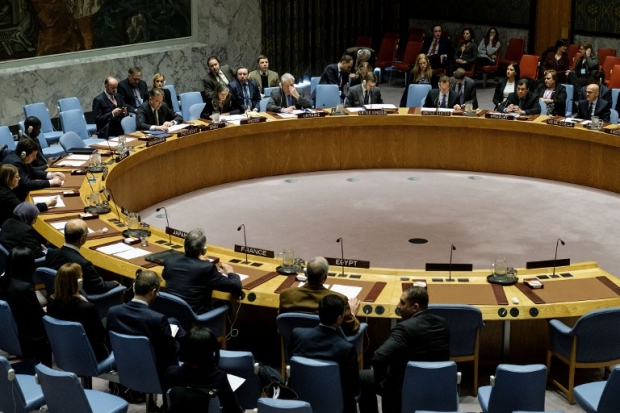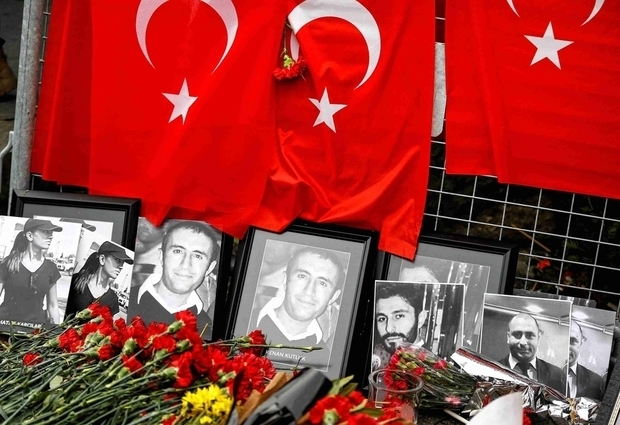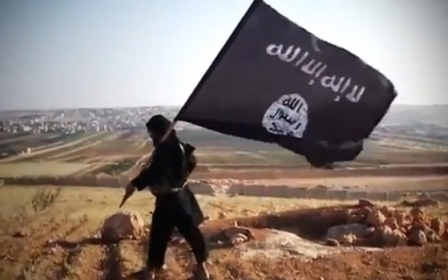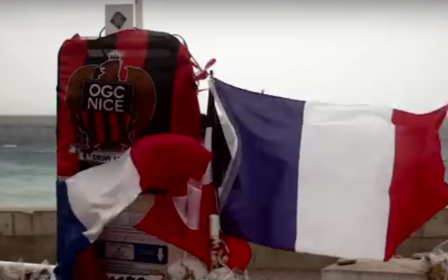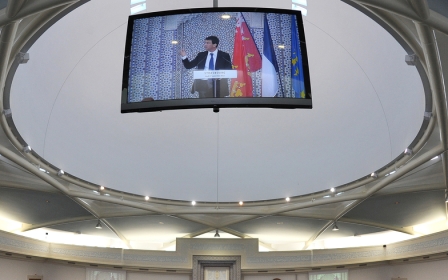Me or chaos: Why the West needs terrorism
As attacks across the Western world and elsewhere multiply, terrorism appears to be nothing short of a godsend for western and eastern powers. From Putin and Assad to Sisi and Erdogan, terrorism has indeed become the vital strategic ally of dictators and autocrats worldwide, though they claim, hypocritically, to be combatting it.
To a lesser extent, the same holds true for democratic nations including France whose increasingly disputed, disdained and even overtly despised political leaders benefit from the existence of enemies at home and abroad.
In such climates of fear, despots – those 'bulwarks against jihadism', who are, in actual fact, terrorists – are able to lull us into forgetting that they are far more murderous than those they call 'terrorists'
Native-born terrorists and the Islamic State (IS), among others, provide a convenient pretext for these government's to re-establish legitimacy, compensate democratic deficits, and justify their own autocratic tendencies.
This is not to say that governments rejoice in these deadly attacks, or that they hope, in secret, for such tragedies to occur.
Merely, it is saying that they have a lot to gain from these attacks and are adept at turning them to their advantage. In truth, it is not in their interest to eradicate terrorism. Quite the opposite.
Fear: a long theorised political practice
Governments reap countless benefits from the public’s obsession with the “jihadist threat”. Entire books could be devoted to the topic.
From Machiavelli to Hume, great political thinkers have long understood and theorised the necessity of fear in the instituting of governance and domination.
As the economist Robert Higgs summed it up compellingly, “without popular fear, no government could endure more than 24 hours”.
“Political powers make constant use of fear, either by designating a threat that might undermine forms of national cohesion, or by focusing the population’s attention on political forces potentially capable of breaking the spirit of our institutions and ways of life," they write.
"Fear is a political project that develops through established order, ideological discourse and collective action.”
Terrorism serving the nation
Today, in the West and elsewhere, fear itself and the rhetoric of “terrorist threats” have led to a certain mode of governance and even to political regimes.
And when the threat isn’t strong enough, the authorities get creative, as have the Canadian and US police, and actually invent “jihadist threats” and false attacks.
In such skilfully maintained climates of fear, despots – those “bulwarks against jihadism”, who are, in actual fact, terrorists – are able to lull us into forgeting that they are far more murderous than those they call “terrorists”.
Take Sisi’s bloody crackdown on protesters in Egypt, Assad and Putin’s massacres of Syrian civilians, and the Saudi-led coalition’s deadly bombings in Yemen, among other examples.
These criminal governments use convenient pet peeves, such as IS, Boko Haram and al-Qaeda, to divert our attention from their own crimes against humanity, which are generally far worse.
Likewise, this fear is used to preserve the legacy of the Sykes-Picot colonial order - or that is to say, postcolonial disorder.
The president and his intelligence services can decide on the assassination of any US or foreign person deemed to be a 'terrorist threat'
Though this “order” is clearly unsustainable and unbearable to growing numbers of populations in the Middle East, it is a boon for some of their leaders who are fighting at least as actively as the countries in the West, if not more so, to preserve the borders upon which their survival depends.
“The illusory fear of terrorism also serves to force entire populations to choose between false dilemmas such as ‘freedom or safety’, ‘terrorism or police state’ and even, in some countries like Saudi Arabia and Syria, bloody state dictatorships, Assad-style, or extremist movements, like IS. It is necessary to choose," Prince Hicham Alaoui of Morocco explained.
“These non-choices, trapping populations between a rock and a hard place, are tantamount to a kind of totalitarian blackmail used to secure compliance and civil obedience. In many cases, they provide an easy excuse for the maintaining of autocratic regimes (Egypt, Gulf states, Syria, Iraq, etc).
"Most Arab states are therefore in no hurry, despite claims to the contrary, to see the jihadist threat disappear. It is the perfect excuse for blocking democratic reform of any kind.”
Such false dilemmas (me or chaos) and blackmail tactics (Assad or IS) allow authoritarian rulers to build a false national consensus around the threat of IS, enabling them to effectively pursue their own political aims: to stay in power, to seize power through violence, and to brutally repress opposition groups (the case of Erdogan, in particular).
Political expediency
In France, irrational fears of terrorism, but also of “radical Islam” and “political Islam” (all three are rolled into one these days), are basically used to censor, ban and exile undesirable Muslims (such as Tariq Ramadan) and, likewise, to repress political dissent.
French Prime Minister Manuel Valls cynically banned public demonstrations during the Paris Climate Conference claiming, hypocritically, that the protesters posed a threat to public order.
“Exceptional situations require exceptional measures” is being heard from all sides. So nowadays, the Vallses of the world can claim rule of law and fundamental freedoms to be mere "judicialisations" with which, “in times of war”, we can no longer be burdened.
Nicolas Sarkozy sees them as “legal quibbles” whereas Éric Ciotti of the “uninhibited right” suggests doing away with the rule of law altogether on the pretext that terrorists don't respect it.
Terror moneyspinner
On the other side of the Atlantic, the “war on terror” has led to astronomical sums being sunk into defence measures such as Homeland Security to the delight of the military establishment and all those connected with it, including numerous think tanks, academics and researchers. It has also justified an unprecedented expansion of executive powers.
As a result, the president and his intelligence services can decide on the assassination (even secretly) of any US or foreign person deemed to be a “terrorist threat”, and this, of course, outside the court system and minus the usual judicial safeguards of American law (habeas corpus, the right to a fair trial, etc.)
Yet no one bats an eyelid at such excessive and repressive measures. In the land of Voltaire, “we have to fight terrorism”, is being bleated in unison.
There are several good reasons for maintaining this illusory fear of terrorism, including unemployment, stagnant purchasing power, and downward mobility.
In other words, fear allows governments to divert public attention and debate from unresolved socio-economic problems.
It is therefore almost inconceivable that, with the French once more having taken to the streets to demand political, economic, cultural and social reform through the movement known as Nuit Debout - which looked like it was becoming a proto-revolutionary movement but has since disappeared - Valls, as usual, raised the spectre of “Islamism”.
After conjuring up “the bearded Islamists taking over our neighbourhoods”, he took his diversionary tactics even further, declaring, at his most mindboggling: “Of course, there is the economy and unemployment, but essentially, it is a war about culture and identity.”
Unemployment, stagnant growth, global financial corruption, rising inequalities, growing instability on all levels of society, the housing crisis, the economic crisis, and the impoverishment of everyone, excluding the notorious one percent, these are all just minor concerns to a PM - since turned presidential candidate - who shamelessly proclaims that what really matters, the actual problem, the real danger for France and the rest of Europe, is the Muslim veil.
READ: France's PM ignores his country's real problems to focus on banning the headscarf
The context of the post-Paris attacks was no less than a godsend for French military and police forces, for years subject to budget cuts and draconian restrictions, an undreamt miracle that would see the French government do an about-face on security budget and armed forces recruitment policies.
In the aftermath of Charlie Hebdo, thousands of planned job cuts were immediately cancelled and the army budget was instantly increased by €4bn ($4.2bn) - budgetary discipline be damned.
Since then, security budgets have been revised upwards with each new attack. At the same time, the prerogatives of law enforcement agencies, including that of weapon use, have greatly expanded.
Goodbye financial crisis – not a problem – and forget about austerity, those lean years that our armies and national police forces were always fussing about to no avail.
Better yet, nobody seems to mind the astronomical sums made miraculously available, just like that, for security measures (alone). That now-familiar refrain “we need to fight terrorism, to provide ourselves with the necessary resources” is on everyone’s lips.
Terrorism serving nations abroad
On the geostrategic level, the "fight against terrorism" is also the perfect alibi for implementing imperialist strategies and power projection beyond national borders.
Thus was economically depressed Russia able to make a spectacular comeback in the Middle East through the Syrian civil war, marginalising the European Union and the United States, its reviled rivals, throughout the region in the process.
Similarly, IS gives the Turkish government an ideal excuse for settling its old scores with the Kurdistan’s Workers Party (PKK), and extending its zone of control south of the border (through its Euphrates Shield offensive in Syria and Iraq), to negotiate with the EU from a position of strength, for example, by using the Syrian refugee threat to blackmail Europe.
As for Iran, IS gives Tehran a pretext to step-up its colonisation of Iraq - to implement an expansionist strategy in the region to counter Saudi Arabia.
The list goes on and on. So, though certain countries do indeed have good reason to fear IS, IS today is nothing less than the “useful idiot” of governments worldwide.
- Dr Alain Gabon is an associate professor of French based in the United States and the head of the French Department at Wesleyan College in Virginia. He has written numerous papers and articles on contemporary France and on Islam in Europe and throughout the world. His works have been published by academic reviews, think tanks, such as Great Britain’s Cordoba Foundation, and mainstream media outlets, such as Saphirnews and Les cahiers de l'Islam. His essay entitled ‘Radicalisation islamiste et menace djihadiste en Occident: le double mythe’ will appear in an upcoming Cordoba Foundation publication.
Opinions expressed in this article are author’s own and do not necessarily reflect the editorial policy of Middle East Eye.
Photo: People pay tribute to the victims of the January and November 2015 attacks in Paris, Place de la Republique, 6 January 2016 (MEE/ Roxanne D'Arco)
Translation from the French (original) by Heather Allen.
New MEE newsletter: Jerusalem Dispatch
Sign up to get the latest insights and analysis on Israel-Palestine, alongside Turkey Unpacked and other MEE newsletters
Middle East Eye delivers independent and unrivalled coverage and analysis of the Middle East, North Africa and beyond. To learn more about republishing this content and the associated fees, please fill out this form. More about MEE can be found here.


